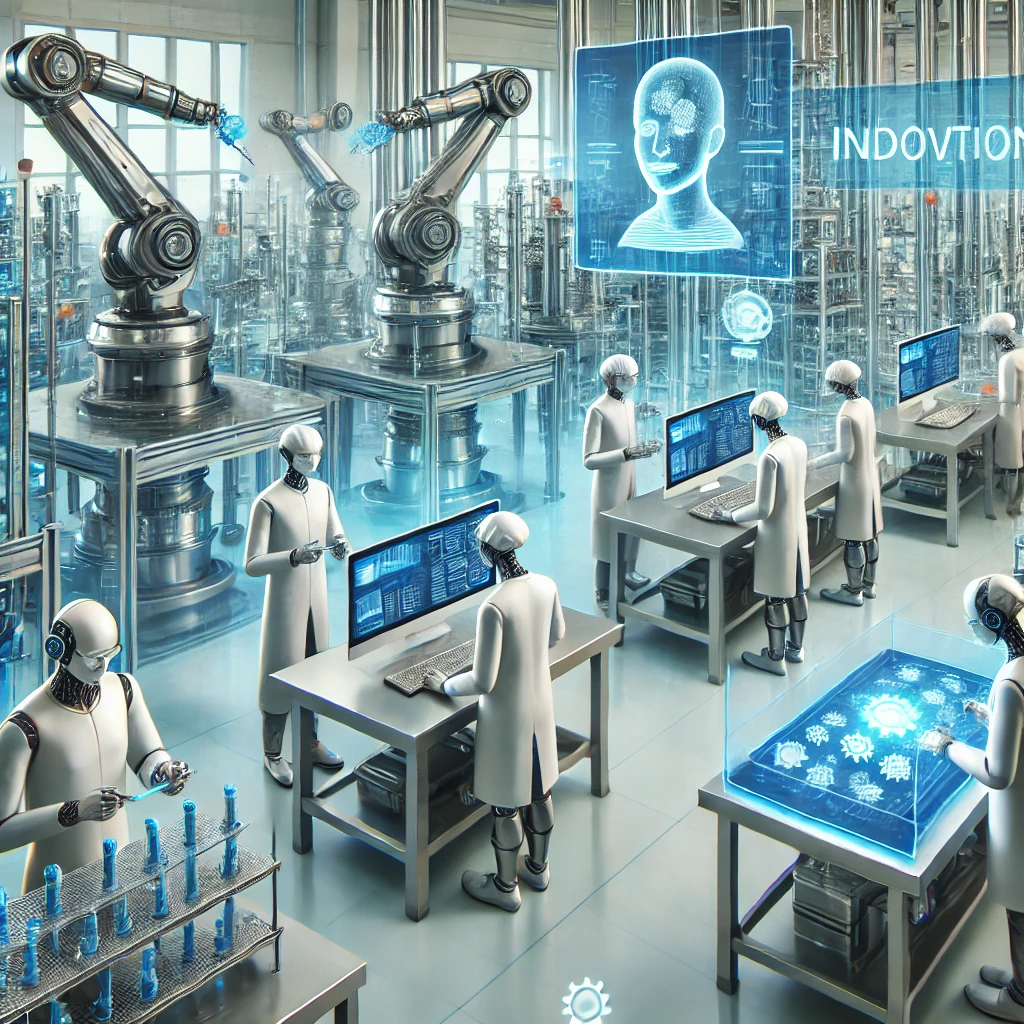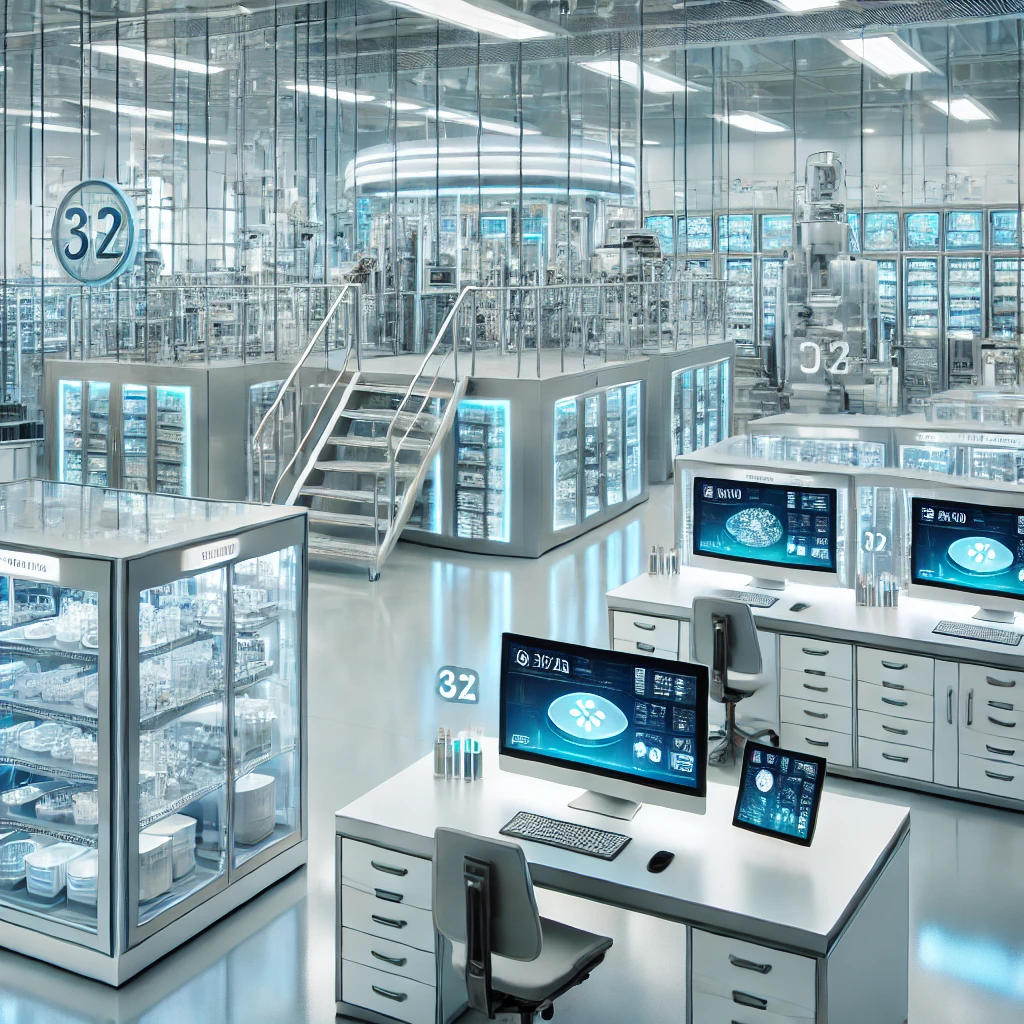The pharmaceutical industry is at the cusp of a technological revolution, driven by advancements in manufacturing equipment that promise to enhance efficiency, precision, and scalability. As the demand for personalized medicine, biologics, and complex therapies grows, the future of pharmaceutical manufacturing equipment is poised for significant transformation. This document explores the emerging trends, technologies, challenges, and opportunities that will shape the future of pharmaceutical manufacturing equipment.

Technological Advancements Driving the Future of Pharmaceutical Manufacturing Equipment
Get in Detail Information:
https://www.marketsandmarkets.com/pdfdownloadNew.asp?id=268102519
Automation and Robotics Integration The integration of automation and robotics in pharmaceutical manufacturing is set to redefine production processes. Automated systems will enhance precision, reduce human error, and increase throughput. Robotics will be employed for tasks such as material handling, packaging, and quality control, ensuring consistent product quality and operational efficiency.
Continuous Manufacturing Systems Continuous manufacturing systems are expected to replace traditional batch processing methods. This shift will allow for uninterrupted production, reducing downtime and improving product consistency. Advanced sensors and real-time monitoring systems will ensure stringent quality control, while minimizing waste and production costs.
Advanced Analytical Technologies Future pharmaceutical manufacturing equipment will incorporate advanced analytical technologies such as spectroscopy, chromatography, and mass spectrometry. These technologies will enable real-time analysis and monitoring of production processes, ensuring compliance with regulatory standards and enhancing product quality.
3D Printing and Additive Manufacturing 3D printing and additive manufacturing will revolutionize the production of personalized medicines and complex drug delivery systems. Pharmaceutical manufacturing equipment will be equipped with advanced 3D printing capabilities, allowing for the precise fabrication of customized drug formulations and medical devices.
Applications of Future Pharmaceutical Manufacturing Equipment
Personalized Medicine Production The future of pharmaceutical manufacturing equipment will support the production of personalized medicines tailored to individual patient needs. Advanced equipment will enable the precise formulation of customized therapies, ensuring optimal efficacy and minimal side effects.
Biopharmaceutical Manufacturing The biopharmaceutical sector will benefit from state-of-the-art manufacturing equipment designed for the production of biologics, including monoclonal antibodies, vaccines, and gene therapies. Advanced bioreactors, filtration systems, and purification technologies will ensure high yields and product purity.
High-Throughput Screening and Drug Discovery Future pharmaceutical manufacturing equipment will facilitate high-throughput screening and drug discovery processes. Automated platforms equipped with advanced analytical tools will accelerate the identification and development of novel drug candidates, reducing time-to-market.
Smart Packaging and Serialization Smart packaging and serialization technologies will be integrated into pharmaceutical manufacturing equipment to enhance product traceability and anti-counterfeiting measures. Advanced labeling, RFID tagging, and blockchain integration will ensure secure and transparent supply chains.
Challenges and Limitations in the Future of Pharmaceutical Manufacturing Equipment
High Capital Investment The adoption of advanced pharmaceutical manufacturing equipment requires significant capital investment. High costs associated with the acquisition, installation, and maintenance of state-of-the-art equipment can be a barrier for small and medium-sized enterprises.
Regulatory Compliance Ensuring regulatory compliance is a critical challenge in the pharmaceutical industry. Future manufacturing equipment must adhere to stringent regulatory standards set by agencies such as the FDA, EMA, and WHO. Continuous updates and validation processes will be necessary to maintain compliance.
Technological Complexity The increasing complexity of pharmaceutical manufacturing equipment poses challenges in terms of operation, maintenance, and training. Skilled personnel will be required to manage and optimize advanced manufacturing systems, necessitating continuous training and development programs.
Future Innovations and Research Directions in Pharmaceutical Manufacturing Equipment
Artificial Intelligence and Machine Learning Integration The integration of artificial intelligence (AI) and machine learning (ML) in pharmaceutical manufacturing equipment will enable predictive maintenance, process optimization, and real-time decision-making. AI-driven algorithms will enhance production efficiency, reduce downtime, and improve product quality.
Internet of Things and Smart Manufacturing The Internet of Things (IoT) will play a pivotal role in the future of pharmaceutical manufacturing equipment. IoT-enabled devices will facilitate seamless communication, data exchange, and remote monitoring, leading to smarter and more connected manufacturing environments.
Sustainable and Green Manufacturing Technologies Sustainability will be a key focus in the development of future pharmaceutical manufacturing equipment. Innovations such as energy-efficient systems, waste reduction technologies, and eco-friendly materials will promote green manufacturing practices, reducing the environmental impact of pharmaceutical production.

Modular and Flexible Manufacturing Systems Modular and flexible manufacturing systems will allow pharmaceutical companies to adapt to changing market demands and production requirements. Equipment designed for modularity will enable quick reconfiguration and scalability, ensuring efficient production of diverse pharmaceutical products.
The future of pharmaceutical manufacturing equipment is marked by technological advancements, innovative applications, and transformative potential. As the industry embraces automation, continuous manufacturing, and advanced analytical technologies, pharmaceutical production will become more efficient, precise, and adaptable. However, challenges such as high capital investment, regulatory compliance, and technological complexity must be addressed to fully realize the potential of future manufacturing equipment. With ongoing research, innovation, and investment, the future of pharmaceutical manufacturing equipment promises to revolutionize the pharmaceutical industry, paving the way for safer, more effective, and personalized therapies.
Advancing Pharmaceutical Manufacturing Equipment in North America
https://www.linkedin.com/pulse/advancing-pharmaceutical-manufacturing-oadcf